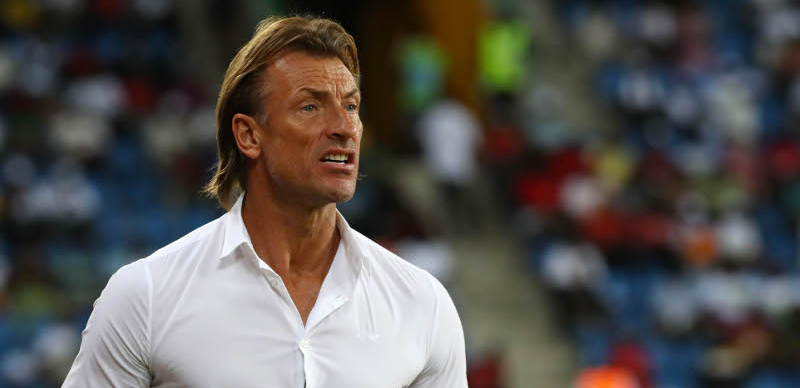French football manager Hervé Renard recently disclosed that he was on the verge of becoming the head coach of Nigeria’s Super Eagles following the abrupt departure of Finidi George in May. Renard, who gained acclaim for his coaching successes with national teams like Ivory Coast and Zambia, noted that he was approached by the Nigeria Football Federation (NFF) shortly after George’s exit. His candidacy gained significant attention during that period, especially as talks with German coach Bruno Labbadia faltered, leaving the Super Eagles’ coaching situation uncertain. Renard revealed that the NFF’s offer was the most lucrative he had ever received in his career, reflecting the federation’s ambition to enhance the team’s performance on the international stage.
Despite the allure of the offer, Renard ultimately chose to decline the position after considerable reflection. He emphasized that he took time to weigh the pros and cons extensively before coming to his decision. In an interview with the French outlet L’Équipe, he stated, “It was the best offer I’ve had so far, but it didn’t suit me in the end.” Renard’s caution indicates not only his career priorities but also a strategic approach to coaching assignments, particularly with national teams where success may hinge on a supportive environment and sufficient time to implement long-term strategies.
In the wake of Renard’s decision, interim coach Augustine Eguavoen is currently steering the Super Eagles as they prepare for the 2025 Africa Cup of Nations (AFCON) qualifiers against Libya. Eguavoen has previously expressed his desire to take on the role of head coach on a permanent basis, yet he insists that any commitment would require meeting specific conditions laid out by him. He has stressed the importance of receiving a long-term contract from the NFF, emphasizing that stability and support from the football body is crucial for a successful coaching tenure.
Eguavoen’s remarks highlight the challenges that come with coaching a high-profile national team like Nigeria. He acknowledges that the task is substantial and requires more than just immediate results. “The Super Eagles job isn’t one you take lightly,” he articulated, underlining the need for patience and consistent backing from the NFF. Eguavoen’s experience underscores the necessity of a collaborative relationship with the federation to ensure that the coach has the resources and time needed to foster a competitive and cohesive team.
Reflecting on his past experiences, Eguavoen lamented the lack of time he has been afforded in previous leadership roles. Over three different tenures, he noted that his assignments ranged from just a couple of months to six-month stints. In stark contrast, he pointed out that predecessors like Clemens Westerhof and Gernot Rohr enjoyed much longer periods in charge, enabling them to build upon their strategies over several years. This disparity in duration raises concerns about the long-term vision necessary for sustainable success, a sentiment echoed by many observers in the football community.
Ultimately, Eguavoen insists that without a show of faith from the NFF in the form of a long-term contract and assurance of resources, he cannot commit to the head coach position permanently. His remarks reflect a broader narrative about the state of coaching in international football, and particularly within the context of Nigeria’s storied football history. As the Super Eagles strive to return to the heights of African football, finding a suitable candidate who can foster a culture of stability, trust, and long-term planning will be crucial to their aspirations. The interplay between coaching stability and the federation’s support will undoubtedly shape the future trajectory of Nigeria’s national team.














